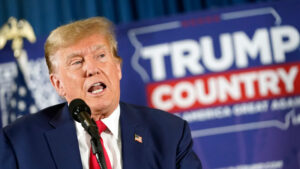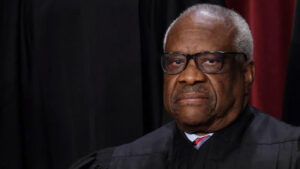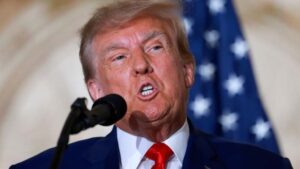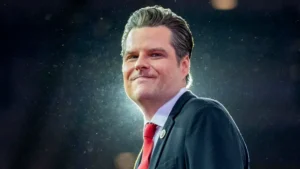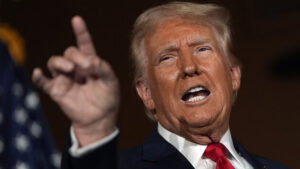Trump Dealt Another Blow as Court Shuts Him Down With Unexpected Order
The New York Court of Appeals dismissed former President Donald Trump’s attempt to overturn a gag order placed against him, ruling that “no substantial constitutional question is directly involved.”
According to an article by Fox News on Tuesday, June 18, 2024, this decision follows Judge Juan Merchan’s earlier imposition of the gag order, which limits Trump’s ability to publicly discuss witnesses and specifics of the case now that his trial has concluded.
Judge Merchan’s gag order, which aims to ensure the integrity of the judicial process, specifically restricts Trump from making public comments that could potentially influence or intimidate witnesses, jurors, or other parties involved in the case. This ruling is particularly significant given Trump’s status as the presumptive 2024 GOP presidential nominee and his high public profile.
Trump’s legal team argued that the gag order infringes on the former president’s First Amendment rights, especially in the context of his ongoing campaign for the presidency. They emphasized the proximity of the upcoming November presidential election and the importance of Trump’s ability to engage freely in public discourse, particularly as he prepares for the first debate against President Biden later this month.
In their appeal, Trump’s lawyers contended that the gag order unduly restricts not only Trump’s speech but also the speech of his supporters, potentially affecting the political discourse surrounding the election. They argued that in a democratic society, particularly during an election cycle, political figures should be free to discuss matters of public concern without judicial constraints.
However, when Judge Merchan declined to lift the gag order, Trump’s legal team took the case to the New York Court of Appeals. The appellate court’s decision to reject the appeal reinforces the initial ruling, emphasizing the judiciary’s responsibility to maintain the integrity and fairness of the trial process.
The court stated that the gag order did not present a substantial constitutional question, implying that the limitations imposed were deemed appropriate and necessary within the context of the case. This ruling represents a significant setback for Trump, who has built much of his political persona on his ability to communicate directly and unfiltered with his supporters.
The gag order’s enforcement means that Trump will need to navigate the remainder of his campaign under these restrictions, potentially altering his usual approach to public and political engagement. The court’s decision highlights the ongoing tension between judicial processes and the political activities of high-profile individuals.
While Trump’s team viewed the gag order as an undue restriction on free speech, the judiciary saw it as a necessary measure to protect the legal proceedings’ fairness and integrity. This balance between maintaining a fair trial environment and respecting constitutional rights continues to be a contentious and complex issue in cases involving prominent public figures.
As the 2024 presidential election approaches, this ruling may have broader implications for how legal constraints intersect with political campaigning. Trump’s inability to freely discuss aspects of his legal challenges could influence his campaign strategy and communication methods, potentially shaping the dynamics of the presidential race.
Moreover, the court’s decision underscores the importance of judicial independence and the principle that legal proceedings should be conducted without external pressures or interference. By upholding the gag order, the New York Court of Appeals has affirmed the judiciary’s role in safeguarding the legal process, even when it involves individuals with significant political influence.
This case serves as a reminder of the complexities involved in balancing the rights of individuals with the requirements of a fair and impartial judicial system, particularly when those individuals occupy prominent positions within the public sphere. As Trump continues his campaign, how he and his team adapt to these restrictions will be closely watched, both by his supporters and his critics, as a measure of his ability to navigate the intersecting worlds of law and politics.


